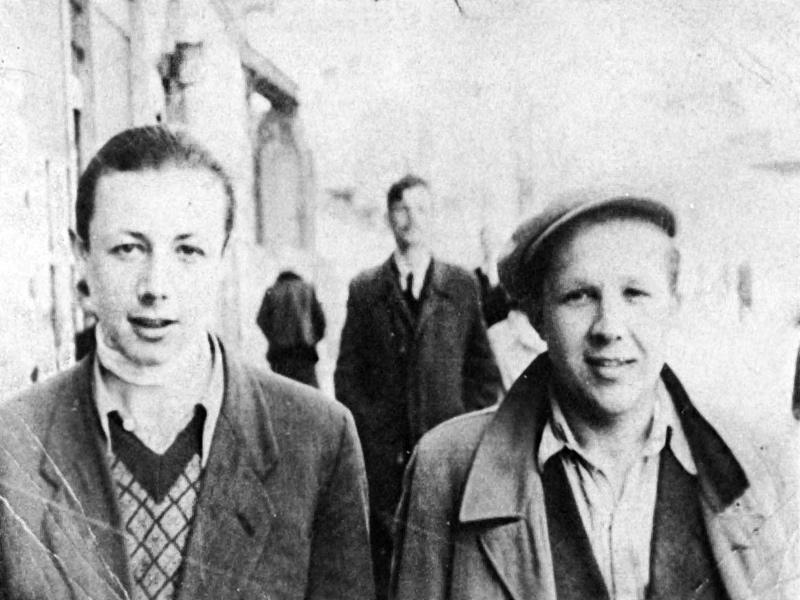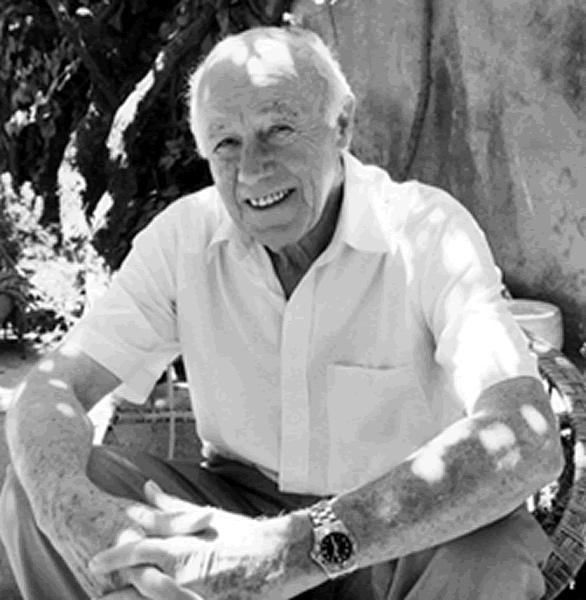23 December 2018
"This is the loss of a special figure, because "Kazik" was a real warrior in the full sense of the word," said Yad Vashem Chairman Avner Shalev. "He was a courageous and resourceful young fighter. Kazik was not a political figure but a man who fought for the memory of the Holocaust in its purest form and did so as member of the Commission for the Designation of the Righteous Among the Nations. Today, we lost a very important voice. Our challenge remains to continue to imbue the memory of the Shoah with meaning and relevance in the absence of exemplary figures like Kazik. "
Simcha Rotem (Rathizer), known as "Kazik", was born in 1924 in Warsaw, Poland, the eldest of four children. At the age of 12, Kazik joined the Zionist youth movement Hanoar Hazioni. With the outbreak of World War II in September 1939, Kazik's brother, Israel, and five other members of his family were killed when the Germans bombed his home, destroying it, and leaving Kazik wounded. After the incarceration of the Jews of Warsaw in the ghetto, Kazik's parents sent him to live with relatives in the village of Klwów, near Radom, where he stayed for about three months.
In 1942, he returned to the Warsaw ghetto and was a member of the Jewish Fighting Organization (ZOB) and during the Warsaw Ghetto Uprising, fought and served as a liaison between the bunkers in the ghetto and the Aryan side of the city. At the conclusion of the Uprising, Kazik led the last fighters from the ghetto through the sewers, and thereby was instrumental in saving their lives. He kept them in hiding in the forest and in various apartments until the end of the war. Following the Warsaw Ghetto Uprising, Kazik continued to function as a liaison and took part in the Polish uprising in Warsaw.
In January 1945, he was sent to Lublin to contact the provisional Polish government. On his way there, he met a group of Soviet soldiers and found himself in an area that had just been liberated from Nazi occupation. Later he took part in the "Beriha" organization. In 1946, Kazik immigrated to Eretz Israel (Mandatory Palestine) as part of the Aliyah Bet and was imprisoned by the British in the Atlit detention camp. Once in Israel, Kazik joined the Haganah and fought in the War of Independence. After the establishment of the State, Kazik served in a number of capacities as an envoy on behalf of the State of Israel.
He was married to Gina, neé Olmer, and they had two sons and five grandchildren. In 1984, he published his memoirs as "Memoirs of a Warsaw Ghetto Fighter". Since 1963, Kazik has been active on the Commission for the Designation of the Righteous Among the Nations at Yad Vashem. In 2010, the Government of Poland erected a monument over the manhole at 51 Prosta Street, Warsaw, where Kazik had emerged from the sewers with the fighters he led out of the ghetto.








